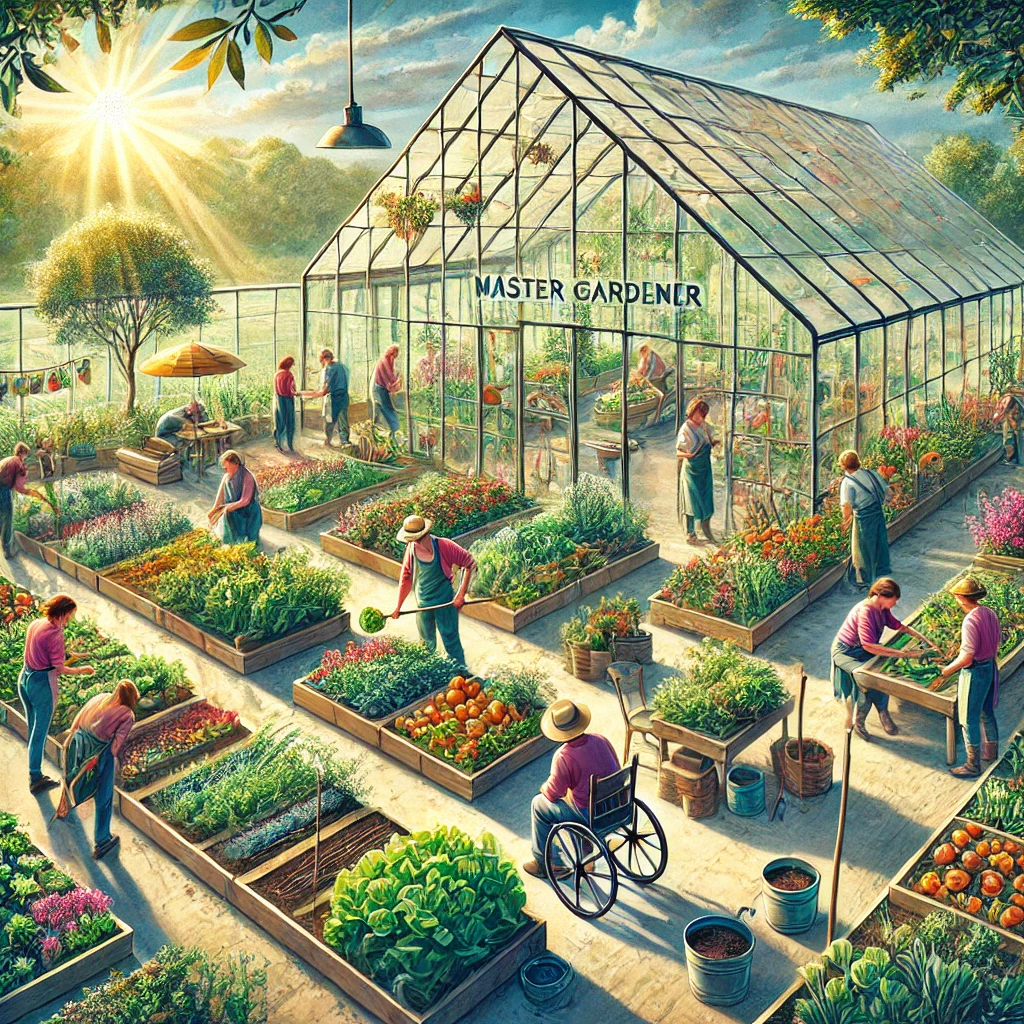
Master Gardening Hands-On Class & Community Garden
Mission Statement: At Applegarth Greenhouse, our mission is to cultivate a thriving, hands-on learning environment where individuals deepen their understanding of horticulture, sustainability, and regenerative gardening practices. Through our “Master Gardener” Hands-On Class, we empower participants with the knowledge and skills to grow their own food, nurture ecosystems, and foster biodiversity.
Our community garden serves as a living classroom—where people of all experience levels can connect with nature, share wisdom, and contribute to a healthier planet. We believe in the transformative power of gardening to build stronger communities, enhance well-being, and promote environmental stewardship.
Together, we grow not just plants, but a sustainable future, rooted in education, collaboration, and a shared love for the Earth.
Here is a list of Activities for the Master Gardening Hands-On Class & Community Garden
Foundational Gardening Skills
- Soil Health & Preparation – Learn how to test, amend, and build healthy soil through composting, cover cropping, and organic matter.
- Seed Starting & Propagation – Hands-on experience with germination, transplanting, and propagating plants from cuttings.
- Garden Planning & Crop Rotation – Design efficient garden layouts for seasonal planting and sustainable harvests.
- Companion Planting & Permaculture Principles – Learn how to plant symbiotic crops for natural pest control and increased yields.
- Organic Pest & Disease Management – Identify and implement natural solutions to common garden pests and plant diseases.
Advanced Gardening Techniques
- Vermiculture (Worm Composting) – Build a worm bin and learn how to use worm castings as a natural fertilizer.
- Greenhouse & Cold Frame Gardening – Extend the growing season with controlled environments.
- Mycology & Mushroom Cultivation – Learn how to grow edible mushrooms using logs and indoor grow kits.
Community Garden & Sustainability Practices
- Building Raised Beds & Garden Structures – Hands-on workshop constructing raised garden beds, trellises, and compost bins.
- Rainwater Harvesting & Irrigation Systems – Learn how to collect and efficiently use rainwater in gardening.
- Pollinator & Wildlife-Friendly Gardening – Create habitats for bees, butterflies, and beneficial insects.
- Herbal & Medicinal Garden Crafting – Design and plant a garden with herbs for culinary and medicinal uses.
- Native & Edible Landscaping – Incorporate native plants and perennials into a food-producing landscape.
Harvesting & Preservation
- Harvesting & Storing Produce – Best practices for timing, handling, and preserving food for long-term use.
- Canning, Fermentation & Dehydration – Learn various methods of preserving garden harvests.
- Seed Saving & Heirloom Conservation – Techniques for collecting, storing, and sharing seeds for future plantings.
- Herbal Infusions & DIY Remedies – Create herbal teas, salves, and tinctures from garden-grown plants.
- Cooking from the Garden – Hands-on cooking classes using fresh, homegrown ingredients.
Community & Outreach
- Garden-to-Table Events – Host community meals showcasing seasonal produce.
- Volunteer & Service Projects – Support food security programs by donating harvests to local food banks.
- Seasonal Festivals & Garden Tours – Celebrate gardening with public events, plant swaps, and educational workshops.
- Cooperative Farmers Market – A community-driven marketplace where local gardeners and farmers can share their fresh, homegrown produce with the community. Equipped with a walk-in cooler and misting systems, the market ensures optimal freshness and quality, creating a sustainable hub for local food exchange.



